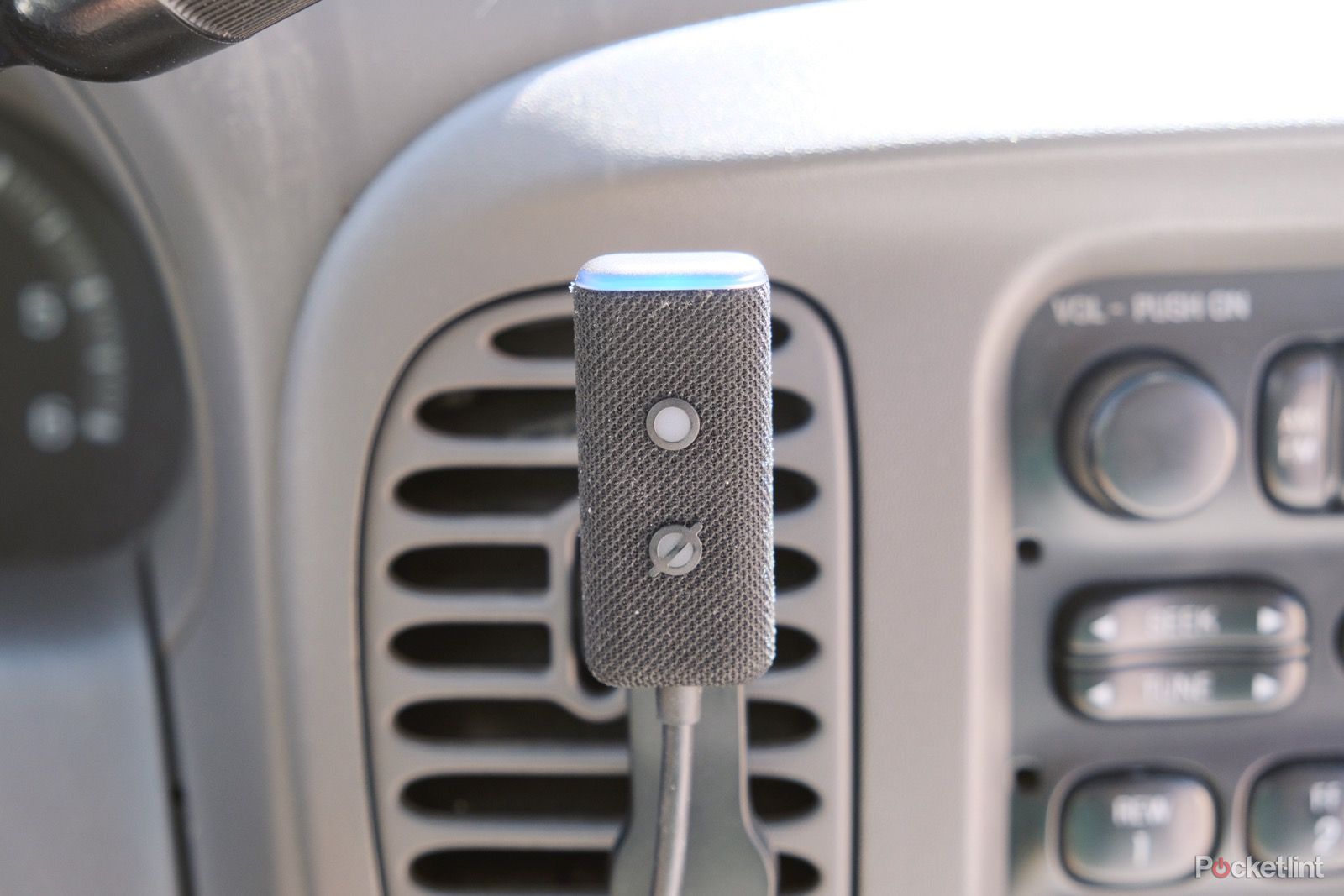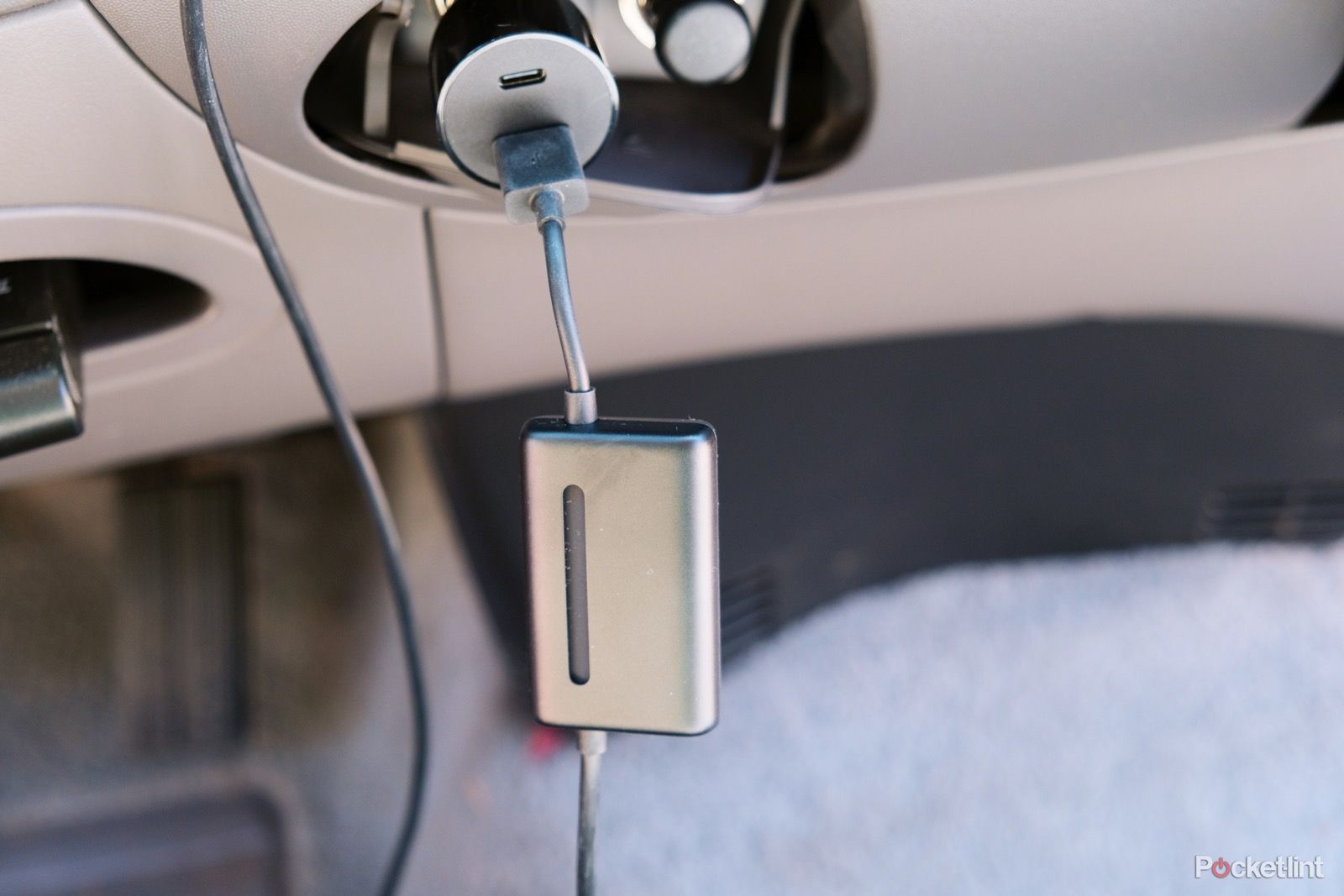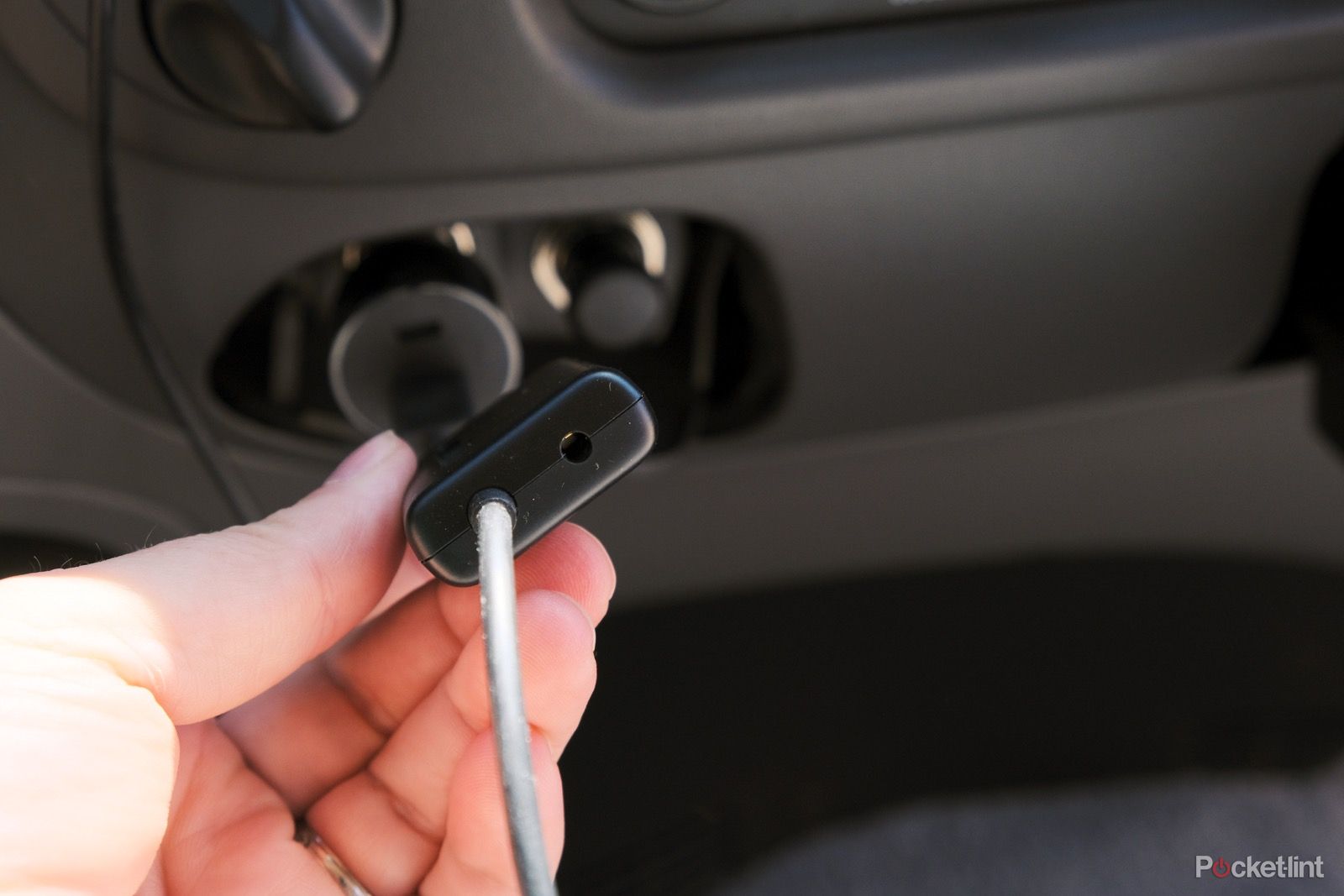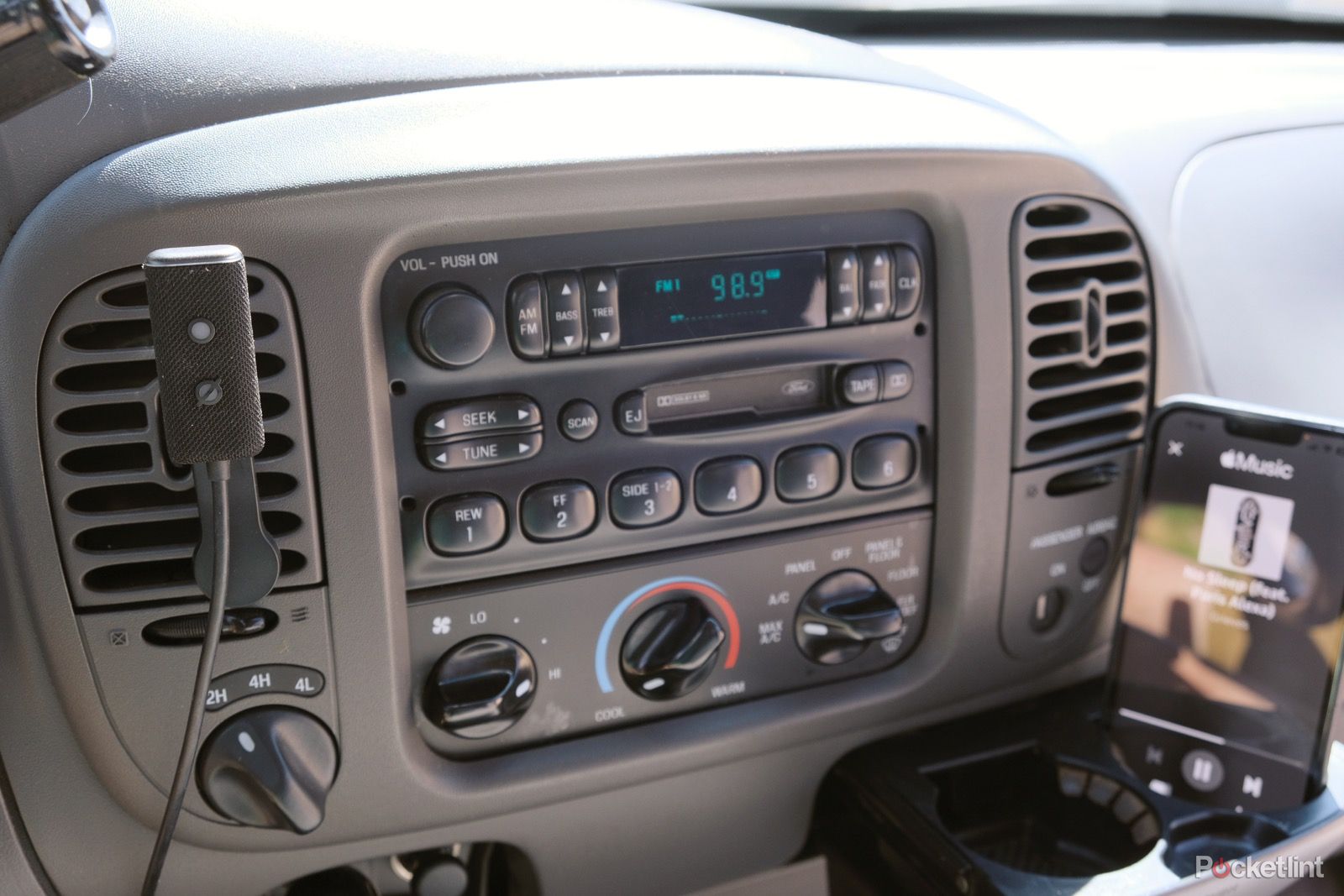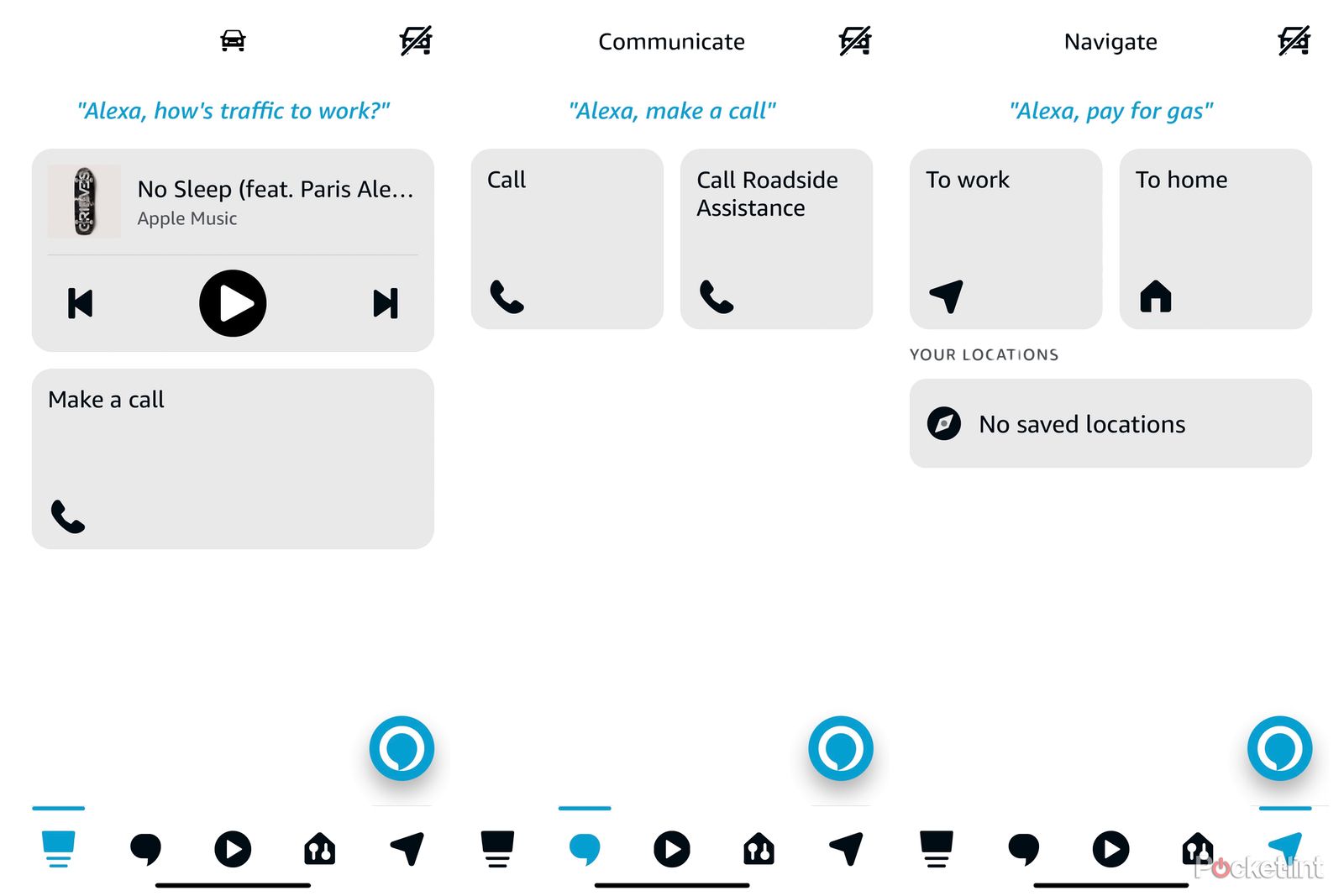Amazon’s Echo Auto is a novel device. It’s a small gadget that brings Alexa inside your car, giving you complete access to Amazon’s ecosystem of Alexa skills and features for under $55. The second-generation model has been streamlined, making it smaller and more manageable inside your car, while not skimping on any features.
I’ve been testing the Echo Auto in a couple of different cars for the last few weeks, and it’s clear there’s a definite need for a smart device like Echo Auto, but it’s not going to be for everyone.
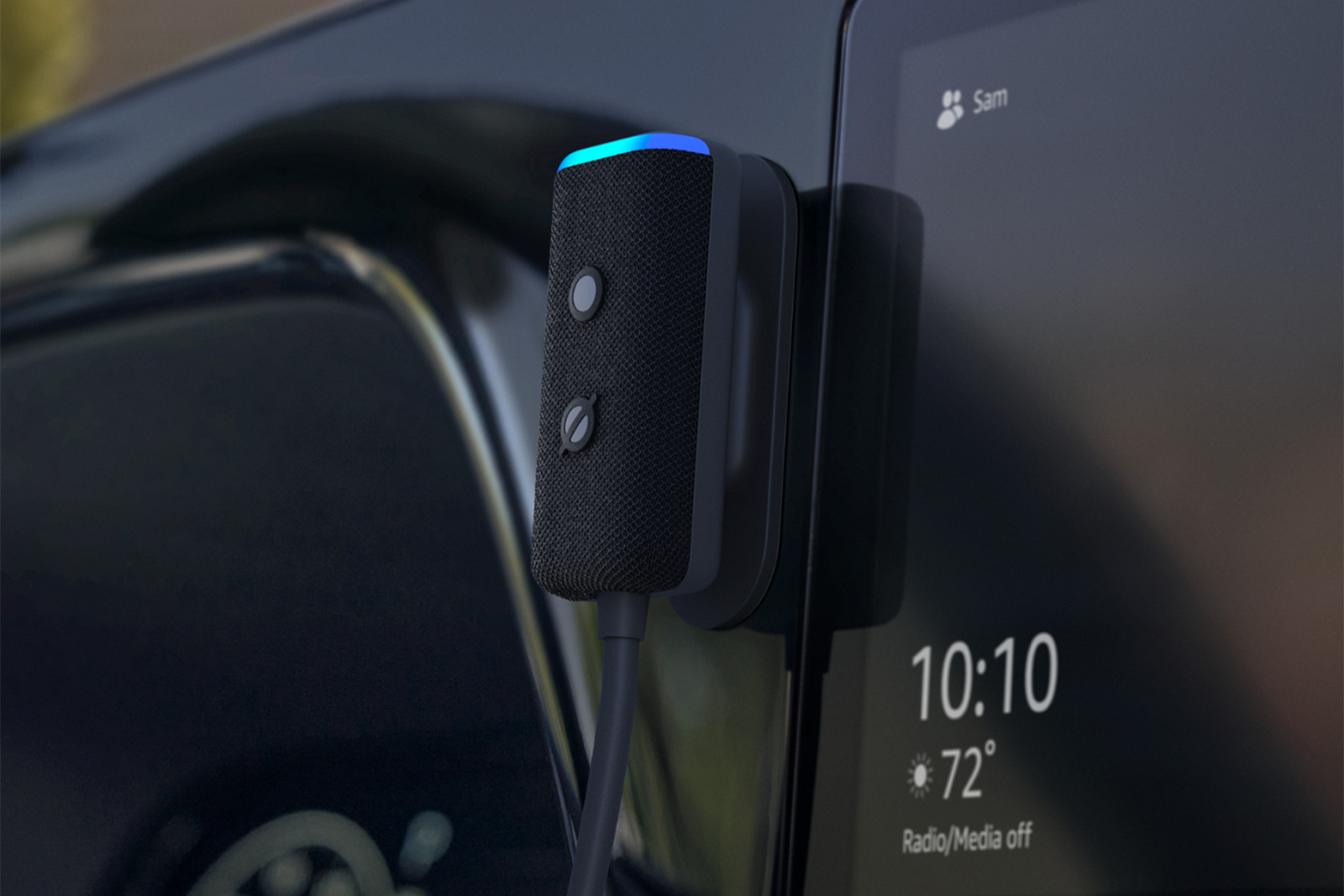
Amazon Echo Auto (2nd Gen, 2022 release)
$39.99 $54.99 Save $15
Amazon’s Echo Auto brings Alexa inside your car for playing music, getting directions, making calls or sending messages. But it’s not going to be for everyone.
- Super affordable
- Nicely designed
- Responsive and accurate voice commands
- No real point if you have Apple CarPlay or Android Auto
- Commands can be missed in noiser situations
Design
- Dimensions / weight (mounted mic section): 52 x 23.2 x 15.3mm / 61g
- 3.5mm aux output
- Built-in Bluetooth
- New cloth-covered design
The original Echo Auto wasn’t very big, but with the latest version Amazon has shrunk down the overall design, splitting it into two different parts. There’s the “listening” section, which holds a total of five microphones alongside Alexa’s iconic indicator light to let you know when it has been triggered, plus two buttons – one to call on Alexa if you don’t want to use the wake word, and another to turn off the microphone.
A cable connects the microphone section to a speaker that’s closer to the USB Type-A connection at the other end of the cable. The microphone section measures 52 x 23.2 x 15.3mm and weighs 61 grams.
The speaker has a 3.5mm headphone jack built into it, so you can connect it directly to your car’s aux input, if it has one, in order to feed any of the Alexa interactions and streaming music through your vehicle’s speakers. Otherwise, you’ll want to connect your smartphone to your car’s Bluetooth in order to feed all of the audio interactions and music through your car’s speakers. If your car doesn’t have Bluetooth or an aux-in port, you’ll be forced to use your phone’s speakers or get something like an FM transmitter.
I rather like the two-part design, having the speaker closer to the power source, while the microphone is at the other end of the cable. And the cloth covering is a nice touch, instead of a plastic device that can look a little clunky like the original.
Echo Auto installation and setup
- Choice of two magnetic mounts included
- Smartphone with Alexa app installed required
- Powered by USB or 12V socket
Included in the box with the Echo Auto is everything you’ll need to power the device, and mount it to the interior of your vehicle. There are two mounts, both of which magnetically attach to the microphone portion of the Echo Auto. One mount uses adhesive to connect to your vehicle’s dash, while the other mount is designed to squeeze a fin of your air vent to hold the microphone in place.
Also included with the Echo Auto is a 12V adapter with a standard USB Type-A port for powering the device itself, along with a USB-C port that’s Quick Charge 3.0 compatible to charge your phone or another device.
Arguably the most important aspect of using Echo Auto, is that you have a smartphone with the Alexa app installed and setup. Echo Auto doesn’t have any sort of cellular connectivity built into it, instead it relies on your phone’s data connection for any interactions.
After installing the Echo Auto, which consists of figuring out where you want to mount it and connecting it either to the included 12V car charger or one of your car’s USB ports, you’ll need to connect the Echo Auto to your smartphone using the Alexa app.
After pairing Echo Auto to your Alexa app, you’ll be walked through a series of questions, asking you to set up your home and work addresses, connect any music services you use to Alexa, or even set up Alexa Messaging if you want to use Echo Auto to send messages.
The entire process took just a few minutes, and was relatively painless, with the most time-consuming aspect being where to place the Echo Auto.
Performance and experience
I originally installed the Echo Auto in a 2019 Tesla Model 3 using one of the built-in USB ports, but quickly realized that the USB port was always on, and therefore the Echo Auto never powered off. That resulted in my phone constantly connecting and disconnecting from it, prompting me to open the Alexa app in Auto Mode. After a couple of days, I moved the Echo Auto to a 1996 F150, which lacks any sort of modern features, including Bluetooth or even a 3.5mm aux-in port.
With the Echo Auto installed in front of an air vent, I found that it was able to recognise any commands I gave, even with the AC turned on full blast. However, I had to talk louder than I expected almost every single time I wanted to interact with Alexa. That meant I often had to repeat commands, because the first one was too quiet.
I’m sure this interaction is a byproduct of being directly in front of the vent, which is admittedly loud, but it was an aspect of using Echo Auto I found to be somewhat annoying – and may not be an uncommon issue for others. However, once I spoke louder, the five microphone array heard my command loud and clear.
Another drawback of using the Echo Auto in a vehicle that lacks any modern features, like something as seemingly simple as an aux-in port, is that I was forced to use my smartphone’s speakers to listen to any interactions or play music. It’s an issue that would be alleviated by adding something like a cassette tape adapter to feed my phone’s audio through the truck’s speakers instead.
During the short period of time I had the Echo Auto setup in my Tesla Model 3 I experienced no lag between when I’d trigger Alexa and when I’d hear any response or audio, be it Alexa talking to me or music streaming. That Bluetooth connection really made a difference – though how useful Echo Auto is in any car that also has the likes of CarPlay or Android Auto built in is questionable.
As far as what you can use Echo Auto for, well, if you’ve ever used an Echo or Echo Show to give Alexa commands, you’ll feel right at home using an Echo Auto.
Once you power on your car, and in turn Echo Auto, it connects to your paired smartphone which then prompts you to open the Alexa app in Auto Mode. This is a new mode for Echo Auto that limits what you can see on your phone’s screen, hopefully preventing you from interacting with your phone while you’re driving. You’ll see larger music controls if you don’t want to use voice interactions to skip a song, as well as big buttons that act as shortcuts to navigate to work or home on the main view in the app.
You can also use Echo Auto to place calls using your phone’s contacts, and send messages – the latter of which will only work with contacts that have signed up for Alexa’s messaging service. According to the Alexa app, nobody in my contacts has, which means in order to send or receive messages using Echo Auto, I’ll need to convince any contacts I want to stay connected with while driving to sign up for Alexa Messaging and have the Alexa app installed on their phone. That’s a tall ask.
Verdict

Amazon Echo Auto (2nd Gen, 2022 release)
$39.99 $54.99 Save $15
Amazon’s Echo Auto has a fresh new design that’s easier to manage inside your car and is an easy way to add more smart features to a car that may otherwise not have it. For a car with Android Auto or CarPlay, I don’t see a need for Echo Auto as either of those platforms is better integrated into your car.
However, for older vehicles that lack any sort of smart connectivity features, Echo Auto is a cost-effective way to add voice controls to your car – just be sure you can get the audio through your vehicle’s speakers to make the most of it.


